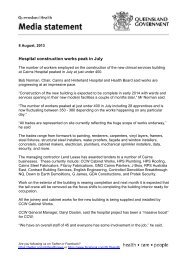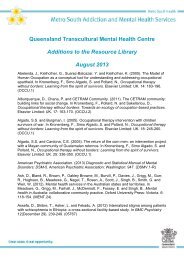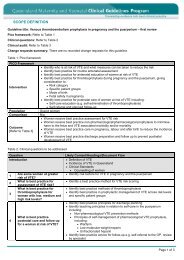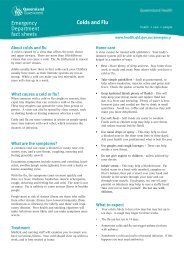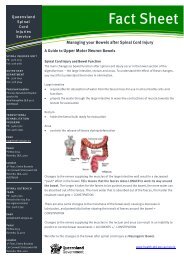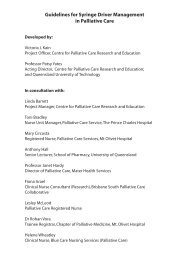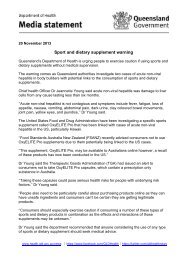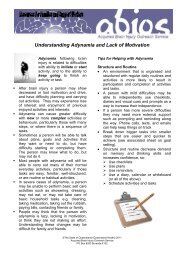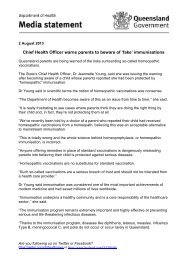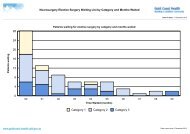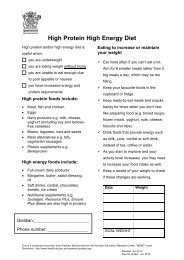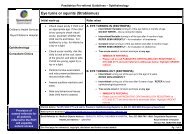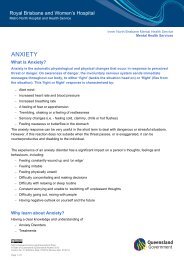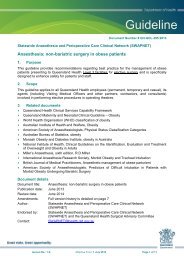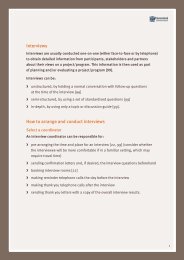Paediatrics - Queensland Health - Queensland Government
Paediatrics - Queensland Health - Queensland Government
Paediatrics - Queensland Health - Queensland Government
Create successful ePaper yourself
Turn your PDF publications into a flip-book with our unique Google optimized e-Paper software.
Immune complications<br />
Australian guidelines for the diagnosis of Acute rheumatic fever in high risk groups [1]<br />
For an initial episode of ARF to be confirmed there must be 2 major manifestations or 1 major and 2<br />
minor manifestations, plus evidence of a recent group A streptococcal infection.<br />
Since Sydenham’s chorea can occur after all other signs and symptoms have resolved, it can be used<br />
alone to confirm the diagnosis<br />
A recurrent episode of ARF (known past ARF or chronic RHD) requires 2 major or 1 major and 2 minor<br />
or 3 minor manifestations plus evidence of a recent GAS infection<br />
Major manifestations<br />
• Polyarthritis or aseptic monoarthritis or<br />
polyarthralgia. Usually migratory i.e. finishes<br />
in one joint, begins in another<br />
• Chorea - strange jerky movements of the<br />
trunk and / or limbs which the patient cannot<br />
control<br />
• Carditis - (including subclinical evidence of<br />
rheumatic valve disease on echocardiogram)<br />
• Erythema marginatum - pink skin rash with<br />
definite rounded borders, occurring mainly<br />
on the trunk, never on the face, and blanches<br />
under pressure<br />
• Subcutaneous nodules - small painless pea<br />
sized nodules over bony prominences (e.g.<br />
elbows)<br />
• Carditis identified on echocardiogram may<br />
be included as a major manifestation [1]<br />
Minor manifestations<br />
• History of fever or presenting fever >38ºC<br />
• Laboratory / other clinical findings:<br />
-- elevated acute phase reactants - ESR<br />
≥ 30 mm/hr or CRP ≥ 30 mg / L<br />
-- prolonged PR interval on ECG<br />
Supporting evidence of group A streptococcal infection<br />
• Group A streptococcus isolated on throat culture<br />
• Elevated or rising streptococcal antibody titre. See link for age related levels www.heartfoundation.<br />
org.au/Professional Information/Clinical Practice/ARF RHD/Pages/default.aspx<br />
These serological titres are often high at baseline in Aboriginal and Torres Strait Islander community<br />
children because of repeated infections with GAS. So acceptable evidence for recent GAS infection are<br />
either:<br />
-- titres of > 2 x reference e.g. ASOT > 400 IU / mL or Anti-DNase B > 600 U / mL or<br />
-- a rising titre when repeated after 10 - 14 days<br />
4. Management<br />
• Consult MO who will likely advise:<br />
-- evacuation / hospitalisation - confirmation and management of ARF should<br />
occur in hospital (a wrong diagnosis either positive or negative will have<br />
serious consequences)<br />
-- blood for FBC, ESR, C-reactive protein (CRP), ASOT, anti-DNase B and<br />
streptococcal serology<br />
-- swab throat and any skin sores<br />
• Take blood cultures if temperature ≥ 38°C<br />
• Record ECG<br />
• Consider chest x-ray and echocardiogram<br />
• Provide pain relief as required. Use paracetamol for pain and fever. Do not give<br />
aspirin or non-steroidal anti-inflammatory drugs (NSAID) until the diagnosis is<br />
confirmed - these may cause joint symptoms to disappear and complicate the<br />
diagnosis<br />
Primary Clinical Care Manual 2011 Controlled copy V 1.0 577



